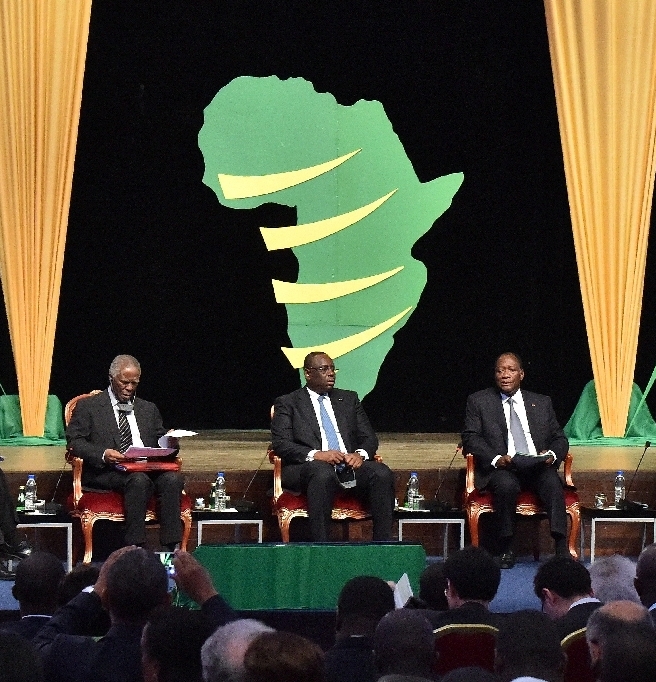'Economic emergence': the potential of fair African development
Afro-pessimism is giving way to optimism, according to attendees at this week’s International Conference on the Emergence of Africa. Ivory Coast’s President Alassane Ouattara, who hosted the gathering, is one of 30 African leaders to sign on to a new policy of social and economic “emergence”. The term has become a buzzword among African politicians who take it to mean a fairer distribution of wealth and other measures that benefit society at large.
We can no longer blame it on geography, we can no longer blame it on disease, we can no longer blame it on the colonial legacy, because many people have emerged.
Steve Kayizzi-Mugerwa, vice-president of African Development Bank
Emergence modelled on the success of the “baby tigers” of Asia – Indonesia, Malaysia and Vietnam – as well as Brazil, Chile and Colombia in South America, is presented as the opposite of a capitalist and dehumanised economic vision. Helen Clark, administrator for the UN Development Programmem believes that by 2050, an ‘emergent Africa’ would have tripled Africa’s share of global GDP, enabled 1.4 billion Africans to join the middle class, and reduced tenfold the number of people living in extreme poverty.

Business Economic Emergence